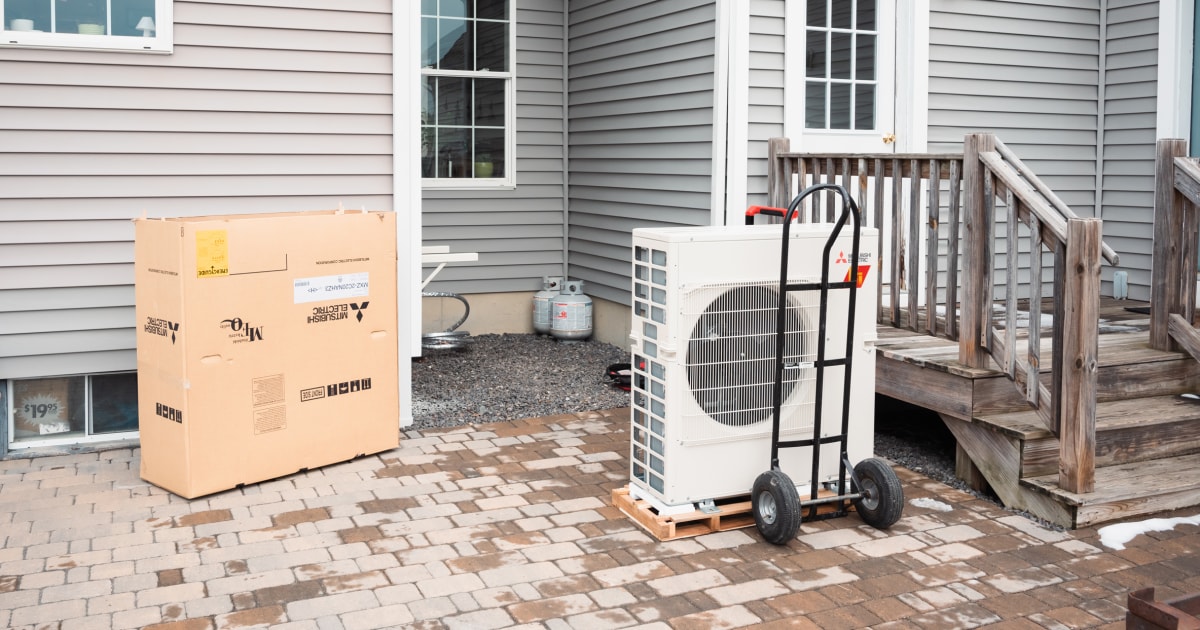The Dalles, Oregon gets 177 sunny days per year. The national average is 205.IMO? I think it depends upon the efficiency of the battery, and how efficient they can make the solar panels, and how much use of the electric devices you are using.
I think it also will depend on how durable they can make these solar panels last. This type of tech is EXTREMELY damaging to the environment. CO2 is natural. Plants use it as their food, it is part of the natural life cycle. OTH? The chemicals and minerals needed for wind and solar? Is SO bad for life systems.
But yeah, I live in an area that has as much overcast weather as the Northwest. I see maybe a half dozen to a dozen cloudless skies a month.
We are great on wind, most weeks . . . sun? Not so much.
Navigation
Install the app
How to install the app on iOS
Follow along with the video below to see how to install our site as a web app on your home screen.
Note: This feature may not be available in some browsers.
More options
Style variation
You are using an out of date browser. It may not display this or other websites correctly.
You should upgrade or use an alternative browser.
You should upgrade or use an alternative browser.
Our Solar/Alt Energy Future
- Thread starter Synthaholic
- Start date
Stryder50
Platinum Member
Except the hypothesis of human caused climate change is the main driving factor for pushing and subsidizing solar and "alternative energy".This is a thread about solar and other alternative energy. It's not a thread for nutcase theories about how climate change is a hoax. There are plenty of threads for that.
For honesty sake, should define what the alternatives are and what they are alternative to.
Synthaholic
Diamond Member
- Jul 21, 2010
- 76,193
- 73,633
- 3,605
- Thread starter
- #223

New photoreactor technology could pave the way to a carbon-neutral future, researchers say
An international team that includes researchers from the University of Toronto has designed and implemented a new model for photoreactors, a solar-powered technology for converting water, carbon dioxide, methane and nitrogen into greener chemicals and fuels.
Synthaholic
Diamond Member
- Jul 21, 2010
- 76,193
- 73,633
- 3,605
- Thread starter
- #224
Grumblenuts
Gold Member
- Oct 16, 2017
- 15,445
- 5,236
- 210
Listen here.
Ralph is joined by M.V. Ramana, professor at the “School of Public Policy and Global Affairs, University of British Columbia,” to lay out the false promise of small nuclear reactors, which still carry the risk of accidents, still produce waste, still produce plutonium for the weapons industry and are still economically noncompetitive with wind and solar. Plus, in an interview recorded before the tragic wildfires in Maui we welcome back citizen activist and organizer, Paul Deslauriers, to break down how his progressive group was able to take over the governance of Maui County and how with a little “Common Sense” you can do the same.
Synthaholic
Diamond Member
- Jul 21, 2010
- 76,193
- 73,633
- 3,605
- Thread starter
- #226
fncceo
Diamond Member
- Nov 29, 2016
- 45,365
- 39,194
- 3,615
At last, some common sense from American auto makers.
Who says there's no good news these days?
Grumblenuts
Gold Member
- Oct 16, 2017
- 15,445
- 5,236
- 210
Yep, Big Oil busy killing the electric car again..
Synthaholic
Diamond Member
- Jul 21, 2010
- 76,193
- 73,633
- 3,605
- Thread starter
- #229
This is great news.
This is great news.
 Not if one is an electrician ......~S~
Not if one is an electrician ......~S~Grumblenuts
Gold Member
- Oct 16, 2017
- 15,445
- 5,236
- 210

Cheap and green: Heat pumps take hold around the world
Based on refrigeration technology that’s more than 200 years old, the heating contraptions have gained popularity thanks to their green footprint and low cost to operate.
The 'save the planet' archy's are all over it, but few can do the math
try googling 'demand load calculation' , some are drag/drop
this isn't rocket science, and is what your poco and/or state officials will need for your electric heat pump future
trust me in that, the devil be in the details ,which our current administration is greenwashing quicker than sh*t thru a goose

~S~
try googling 'demand load calculation' , some are drag/drop
this isn't rocket science, and is what your poco and/or state officials will need for your electric heat pump future
trust me in that, the devil be in the details ,which our current administration is greenwashing quicker than sh*t thru a goose
~S~
Grumblenuts
Gold Member
- Oct 16, 2017
- 15,445
- 5,236
- 210
Can a heat pump save you money?
The best cost-comparison for a heat pump is the electric baseboard heater, says Modi. This system can supply and control the heat in individual rooms.
Heat pumps don’t burn fuel, but use electricity to move warm air in or out of the house. They both heat and cool your home and can significantly cut down on your carbon dioxide emissions.
The baseboard heater is much cheaper to install, but will cost you more in energy use over the long term.
If you’re comparing an electric heat pump to a gas furnace, they’re better for the environment — they can reduce your household carbon dioxide emissions by 38 to 53% — but whether they actually save you money can depend on a few variables.
The estimated cost of heating a home with natural gas is projected to jump more than 34% from last winter, to $952 this winter, reports the National Energy Assistance Directors Association.
But, Modi says you need to compare the price of both electricity and gas in your area.
“Right now in New York City I'm paying about, retail price, of $20 per million Btu for gas. The rate I'm paying for electricity is such that it’s the equivalent of $85 per million Btu now.”
Btu, or British thermal units, is the most common unit for comparing energy sources or fuels in the U.S. One Btu roughly amounts to the energy released by burning a match, according to the U.S. Energy Information Administration.
So, if the heat pump is three to four times more efficient compared to the furnace, but electricity ends up being five times more expensive than the cost of gas in your area, then you won’t be saving money with a heat pump.
According to a Consumer Reports survey, members paid an average of $7,791 for a heat pump system compared with $6,870 for a gas furnace — however the price of installing a heat pump can be even more costly in areas with colder climates.
Synthaholic
Diamond Member
- Jul 21, 2010
- 76,193
- 73,633
- 3,605
- Thread starter
- #234
The 'save the planet' archy's are all over it, but few can do the math
try googling 'demand load calculation' , some are drag/drop
this isn't rocket science, and is what your poco and/or state officials will need for your electric heat pump future
trust me in that, the devil be in the details ,which our current administration is greenwashing quicker than sh*t thru a goose
View attachment 833006
~S~
How to limit heat pump electrical load - GreenBuildingAdvisor
So how do I size a system that meets the heating demand as much as possible while living within the available power capacity of the townhouse complex? A group of […]
Example Load Calcualtions Using the Standard Method
www.naffainc.com
That means 75% of the complex will need to agree to spend $10-$20k per household to upgrade the electrical. ie: Not going to happen.How to limit heat pump electrical load - GreenBuildingAdvisor
So how do I size a system that meets the heating demand as much as possible while living within the available power capacity of the townhouse complex? A group of […]www.greenbuildingadvisor.com
Example Load Calcualtions Using the Standard Method
www.naffainc.com
But it doesn't end there, cuz the poco will need to upgrade as well.....~S~
Synthaholic
Diamond Member
- Jul 21, 2010
- 76,193
- 73,633
- 3,605
- Thread starter
- #236
How do I have a heat pump HVAC system plus a GE GeoSpring heat pump water heater, each for over 10 years, with no issues and with no modification to my electrical system?That means 75% of the complex will need to agree to spend $10-$20k per household to upgrade the electrical. ie: Not going to happen.
But it doesn't end there, cuz the poco will need to upgrade as well.....~S~
simply because they worked with what you have for an electrical service SynthHow do I have a heat pump HVAC system plus a GE GeoSpring heat pump water heater, each for over 10 years, with no issues and with no modification to my electrical system?
~S~
Grumblenuts
Gold Member
- Oct 16, 2017
- 15,445
- 5,236
- 210
Actually, complexes that already primarily rely upon resistive electric baseboard heat will obviously reduce their demand in the winter. and you appear to completely ignore the significant incentives / tax credits / deductions already available to owners and contractors alike. The power companies shall always need to upgrade regardless.That means 75% of the complex will need to agree to spend $10-$20k per household to upgrade the electrical. ie: Not going to happen.
But it doesn't end there, cuz the poco will need to upgrade as well.....~S~
Complexes tend to have lots of roof space available for solar panels. The residents should invest and raise hell in court until allowed to incorporate as producers and sell all their excess energy back to the grid.
How do I have a heat pump HVAC system plus a GE GeoSpring heat pump water heater, each for over 10 years, with no issues and with no modification to my electrical system?
Magic.
Similar threads
- Replies
- 21
- Views
- 265
- Replies
- 141
- Views
- 833
- Replies
- 1
- Views
- 135
New Topics
-
-
-
-
the leftist and radical Islam alliance .. the enemy of my enemy partnership ..
- Started by yidnar
- Replies: 0
-
